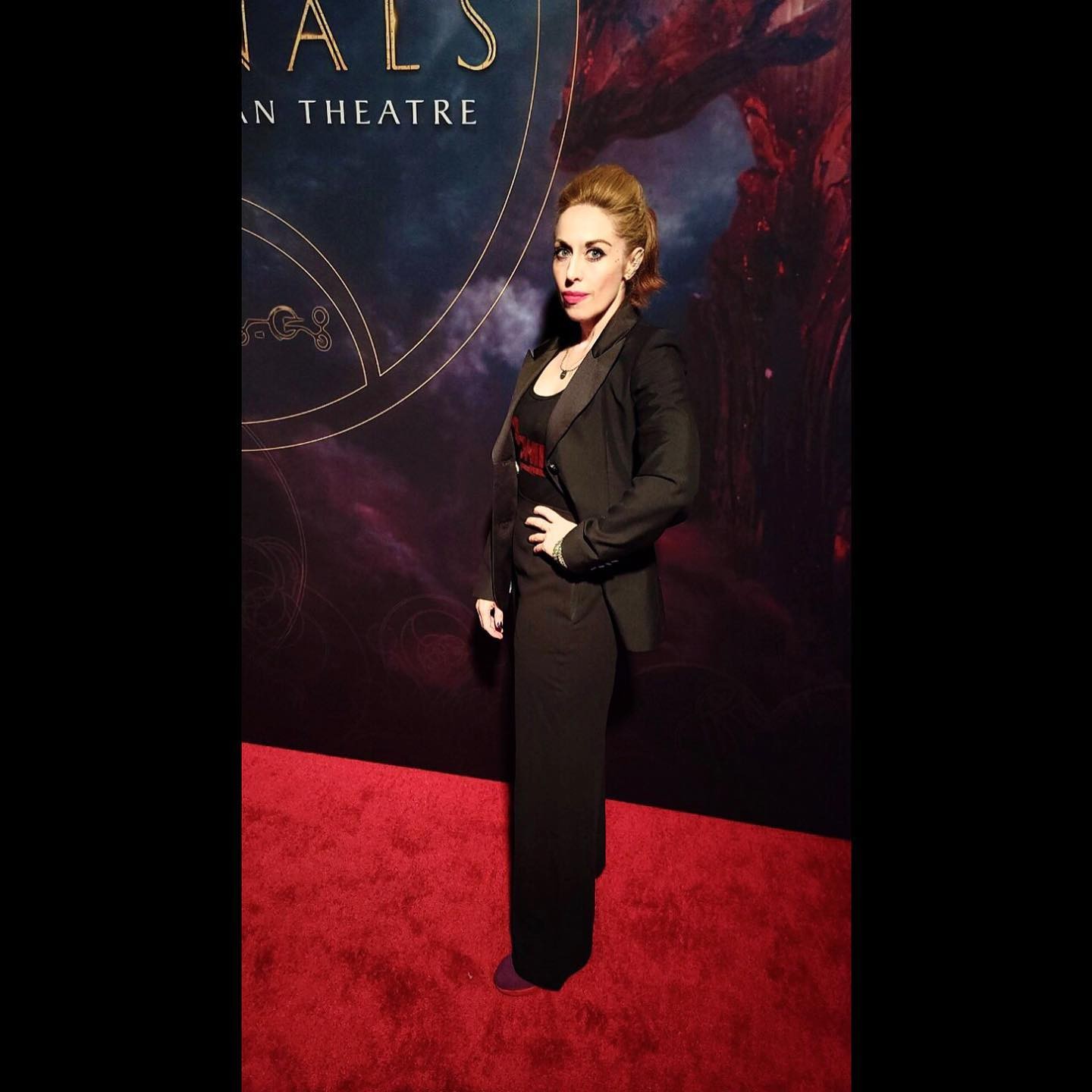We’re excited to introduce you to the always interesting and insightful Ali MacLean. We hope you’ll enjoy our conversation with Ali below.
Alright, Ali thanks for taking the time to share your stories and insights with us today. Did you always know you wanted to pursue a creative or artistic career? When did you first know?
I entered college as a poly sci major because it was impressed upon me that theater was a hobby, not a profession. But my first poly sci 101 class lecture with over 200 students happened to be led by a professor who was the advisor for the Young Republicans Club. On day one, he asked who in the crowd was Pro Choice and I was the only one who raised my hand. From then on I was a target in class, particularly by two frat boys who loved to play misogynist’s advocate and bombard me with taunts and patriarchal rhetoric. As much as I tried, it seemed impossible to sway any of them to look at things from another angle.
I hated my classes and still loved acting, so I secretly auditioned for the Actor’s Studio program and got in. I carried on taking courses for two majors, and I was cast in a play called Vinegar Tom by the great playwright Caryl Churchill, about the witch hunts in 1500s England which had parallel scenes from modern day life. My character was accused of being a witch, after losing a child. The end of the show was quite stunning. All the accused women were lined up across the upstage wall with nooses around our necks, and suddenly the floor dropped out from under us. There were gasps and sobs.
After the play, lots of audience members in the lobby wanted to talk to us, needed to process what they saw, etc. In the corner were the frat boys from my poly sci class. They had taken Theater 101 as an elective, thinking it would be easy, and had to see the show to pass. They were visibly shaken, one was in tears. They cautiously approached me and said that they had never thought about things from a woman’s perspective before but this show had changed their mind about certain things, particularly autonomy over our own body. And they walked away I realized that though I couldn’t change people’s minds with rhetoric or laws, but I could change their perspectives through empathy and art. I knew this is what I would do for the rest of my life.
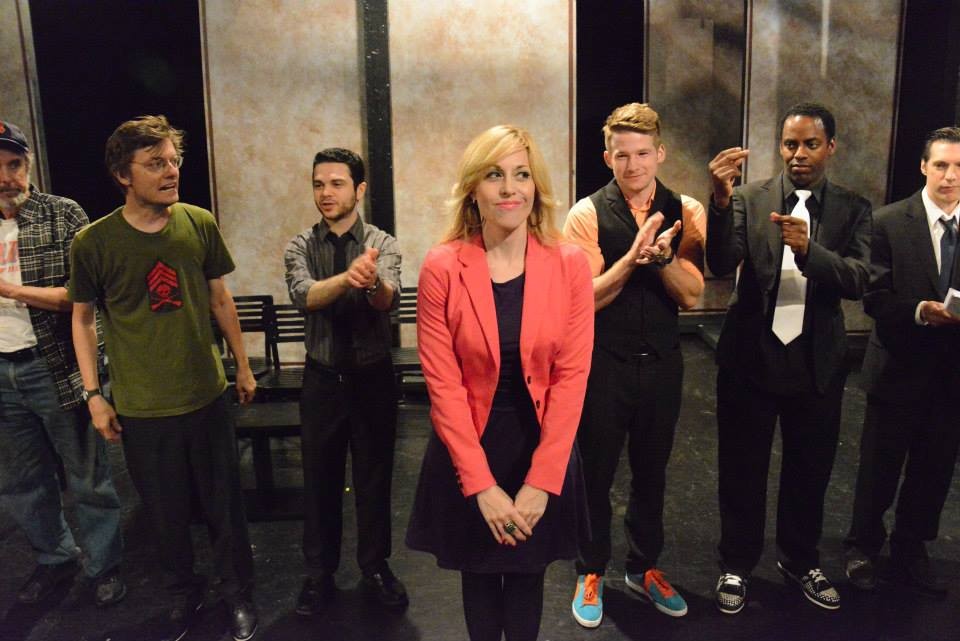


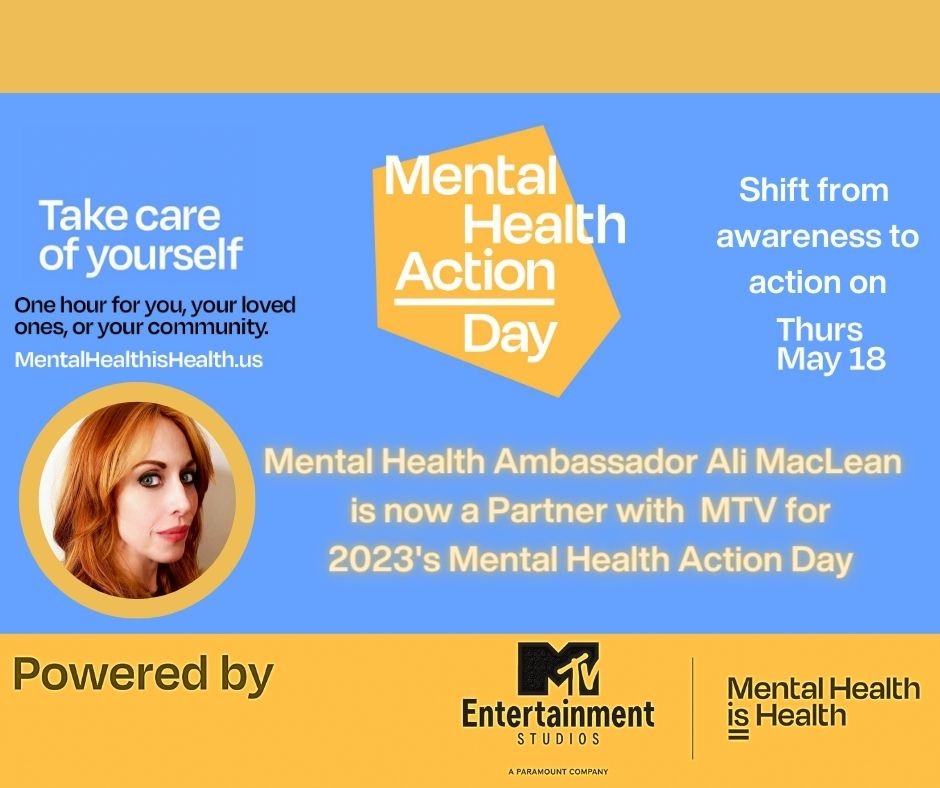
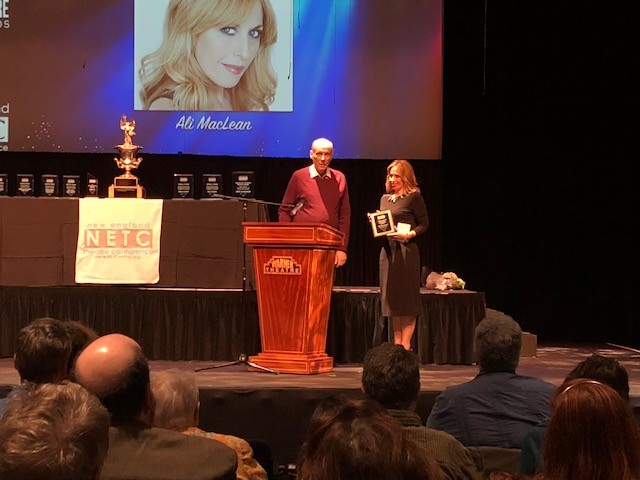
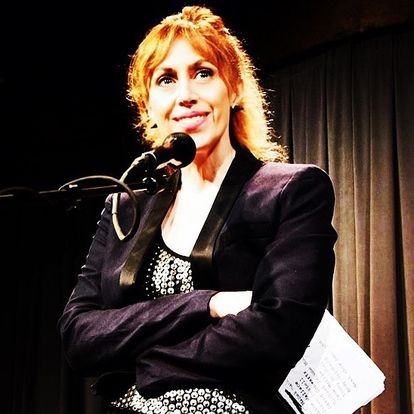
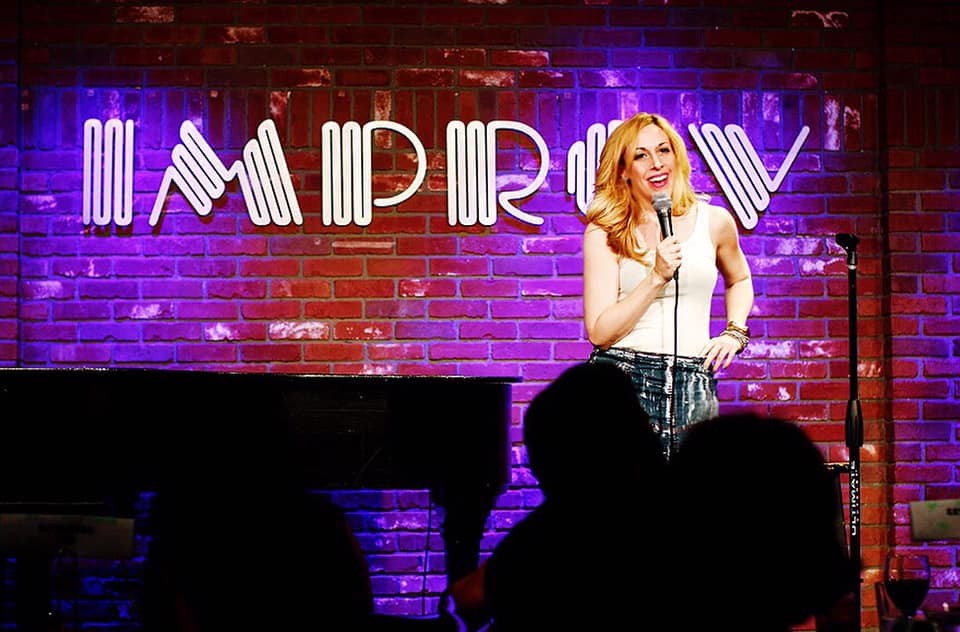
Awesome – so before we get into the rest of our questions, can you briefly introduce yourself to our readers.
I started performing in plays when I was young, and studied acting in college (where I was lucky enough to study with the late Tony Church from the RSC) and at the LaJolla Playhouse under the tutelage of Tony winning director Des McAnuff. I moved to Hollywood, planning on putting Shakespeare on film, just like Kenneth Branaugh, but it turns out Hollywood was a hard pass on that. I considered myself a serious actor, but someone suggested I try comedy. I couldn’t understand why, as I planned on playing roles like Ophelia late into my 60s, but I also had a habit of tripping and wiping out on the sidewalk in front of casting offices because of my platform sandals. So, I relented.
I worked in casting, development, and as the MTV receptionist by day, and did stand up and The Groundlings by night, until some MTV producers saw me perform and offered me a job writing. I wrote on several comedy shows for MTV, VH-1 (including writing for one of my heroes Stephen Colbert), FOX, and POP TV. I also did some acting on HBO’s Mr. Show, and appeared on Jimmy Kimmel, Showtime, VH-1, and various comedy shows. NO ONE hired me to play Ophelia.
During this time, I made some comedic short films that made the rounds and won at some festivals. I also wrote one of the first “blogs”, a comedic and satirical rock column, that got me a real on-air radio and on-camera job. Being a DJ on Indie 103.1 FM and my VJ jobs took me away from writing and performing for a couple of years, as I traveled to festivals and shows, interviewing rock stars, bands, DJs and other performers.
Eventually an injury and serious illness sidelined me and made me slow down and think about what I really wanted to do. I remembered the days of doing theatre for a good cause and missed it. So while I was recuperating and learning to cope with my new disabilities, I tried my hand at writing plays. I had been a comedy writer up until this point, but after my brain injury, I began to write heartbreaking dramatic plays and films examining adversity, heartbreak, violence, mental health, and trauma in America, using humor as a Trojan horse.
I gravitate towards stories that champion otherness, resilience, and moxie.
I am very proud of one of my first plays, She’s Not There, which won the John Gassner Award, among others. It is a gut wrenching look at depression and suicide about a love triangle romance featuring a monster as the personification of depression. I realized after the first reading, when I was bombarded by audience members asking questions about their own mental health issues that a) this hit a nerve and was an opportunity to help others, and b) I was definitely not qualified to help anyone.
I linked up with NAMI (National Alliance of Mental Illnesses) and had a representative do talk backs at each show, so that the audience could ask questions about about a loved one or their own depression. The theater full of strangers shared very personal stories with each other. It was like a mass group therapy session and it was magnificent. Some people even signed up to volunteer for the non-profit afterward. This catapulted me to become a mental health advocate, and I began to openly speak about my own mental health struggles. I then became a talent ambassador for MTV’s Mental Health Day. I now host interviews and panels about mental health for an international audience.
I create all of my projects from a sense of urgent need to understand human behavior, but there is always a component of the production that aims to aid others. This is why I created The Cathartic Company, a collective I began with an altruistic creative model. Each project is partnered with a non-profit that correlates with the show’s theme, and performances are paired with relevant experts, liaisons and resources available for the audience, so they can digest what they’ve witnessed and have a safe space to share their thoughts, ask questions and get information.
For instance, my play Wolves At The Door features an incel-fueled mass shooting and I am hoping to pair up with Sandy Hook Promise, Everytown, and Moms Demand Action for future readings and performances.
My new musical, This Will Be Our Year, with original songs by singer Craig Finn, explores addiction, toxic love, violence, and depression. We have linked up with MusiCares, the Grammy foundation non-profit, so that any audience member with addiction or mental health issues can get the resources they need.
But I’m still waiting to play Ophelia…
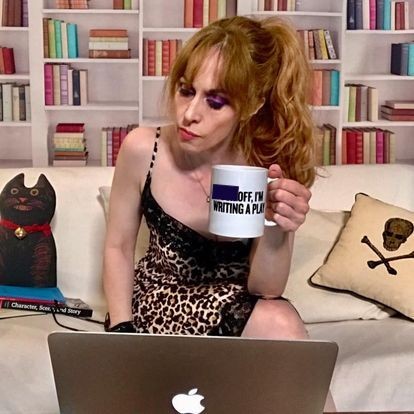
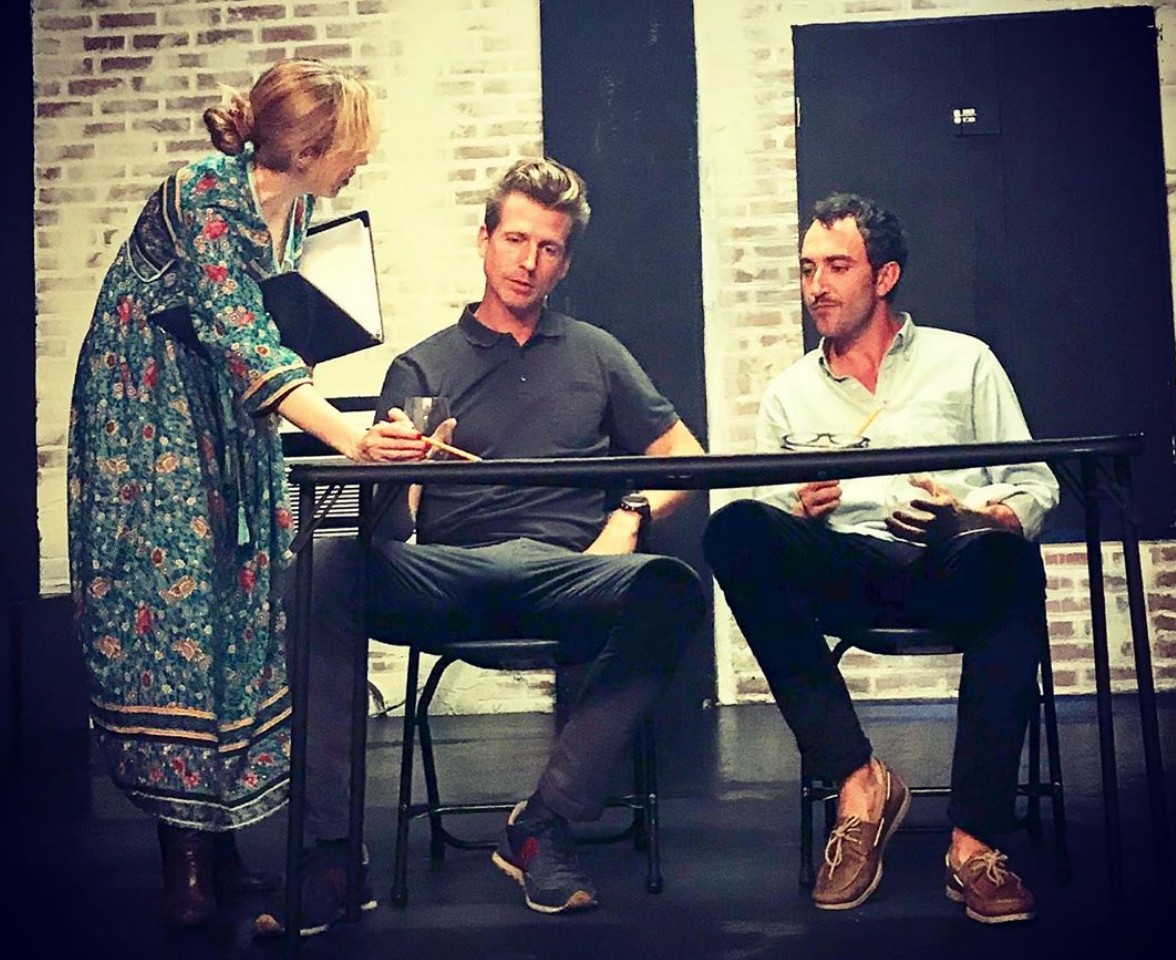
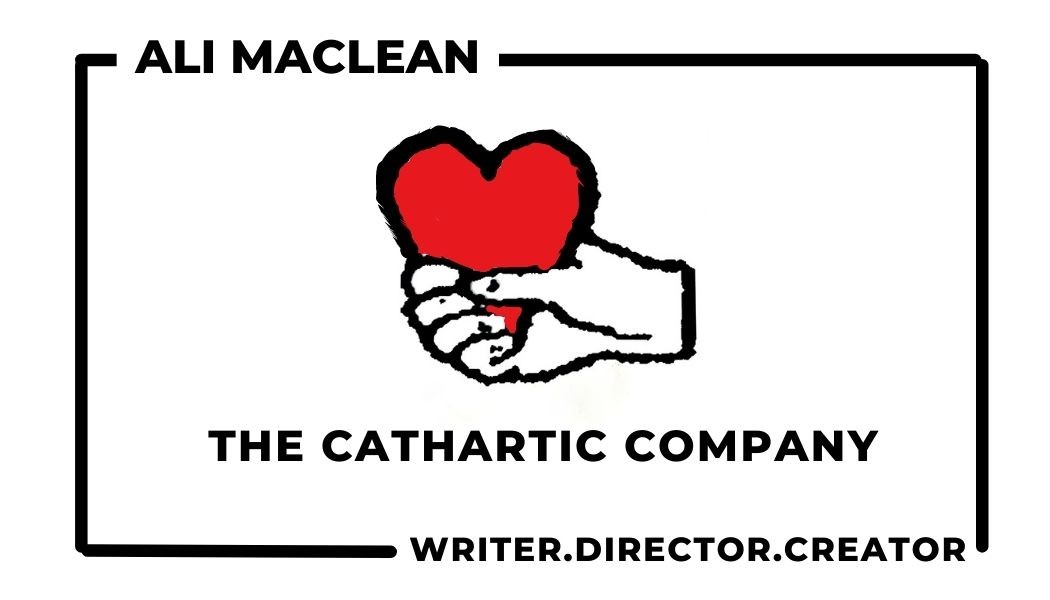

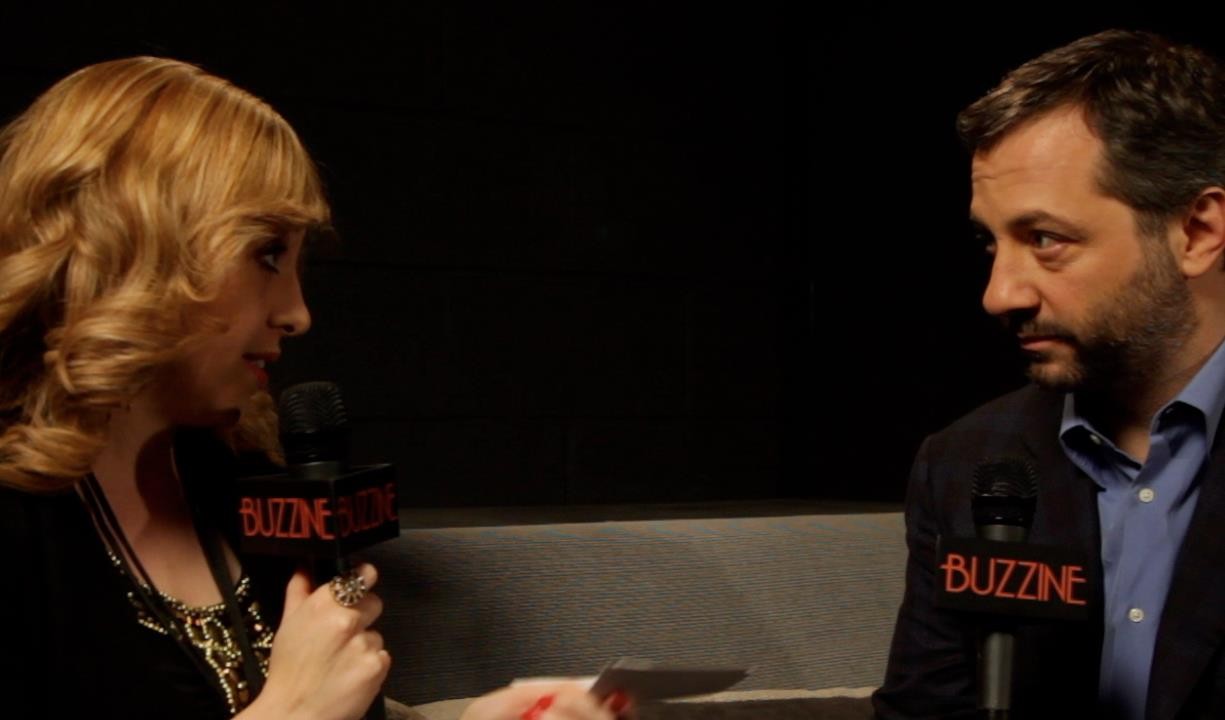
Do you think there is something that non-creatives might struggle to understand about your journey as a creative? Maybe you can shed some light?
I chose this profession because I love it and feel that it is my calling. I could have stuck with poly sci and attempted to be a (9probably very bad) lawyer, but I’m probably way too sensitive for that anyway. What non-creatives will struggle to understand is that this isn’t a 9-5 job for me. This is a life long career and there isn’t really a set schedule. Meaning, if I am cast in a play or have one produced, rehearsals could be on the weekends, at night, often at times when they would be enjoying a beer or free time. I also spend a lot of time networking and seeing other shows. Some of this I don’t enjoy but it’s necessary, but a lot of the ‘research’ I love doing. I could spend all day in the library. I don’t mind staying in on a summer day to write. In fact, if I am in the middle of a scene, it is hard for me to leave it unfinished to go to some type of social event. I often get insular when I am writing, which blends well with my ADHD, and sometimes I’m not the best company, I have trouble compartmentalizing work/free time because the scene will be running through my head during a dinner or party. This is not to say I don’t like socializing. I am a collaborator by nature and a social butterfly. But I love what I do – I have to, given the ups and downs, and it isn’t something I leave behind at the office.
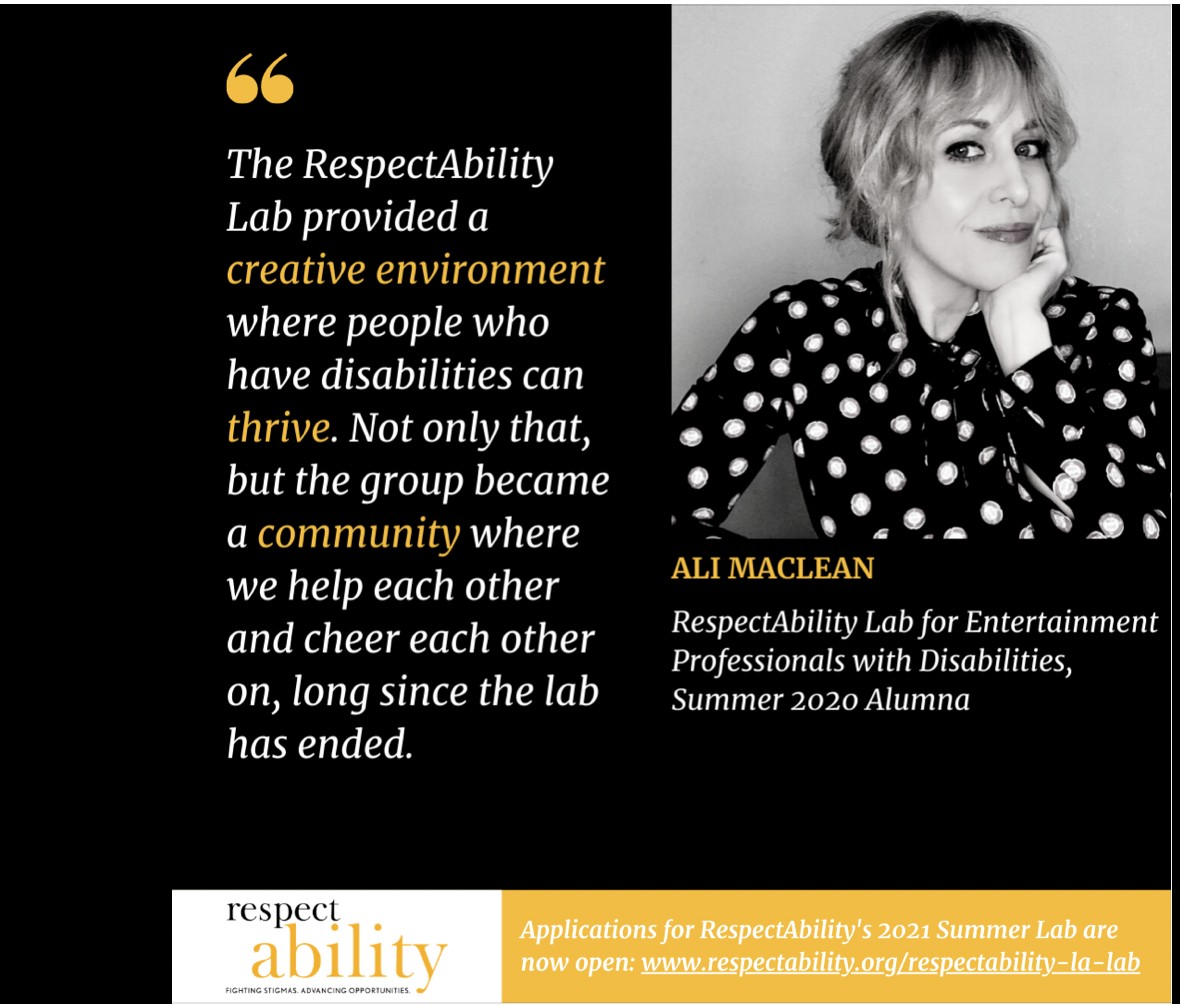
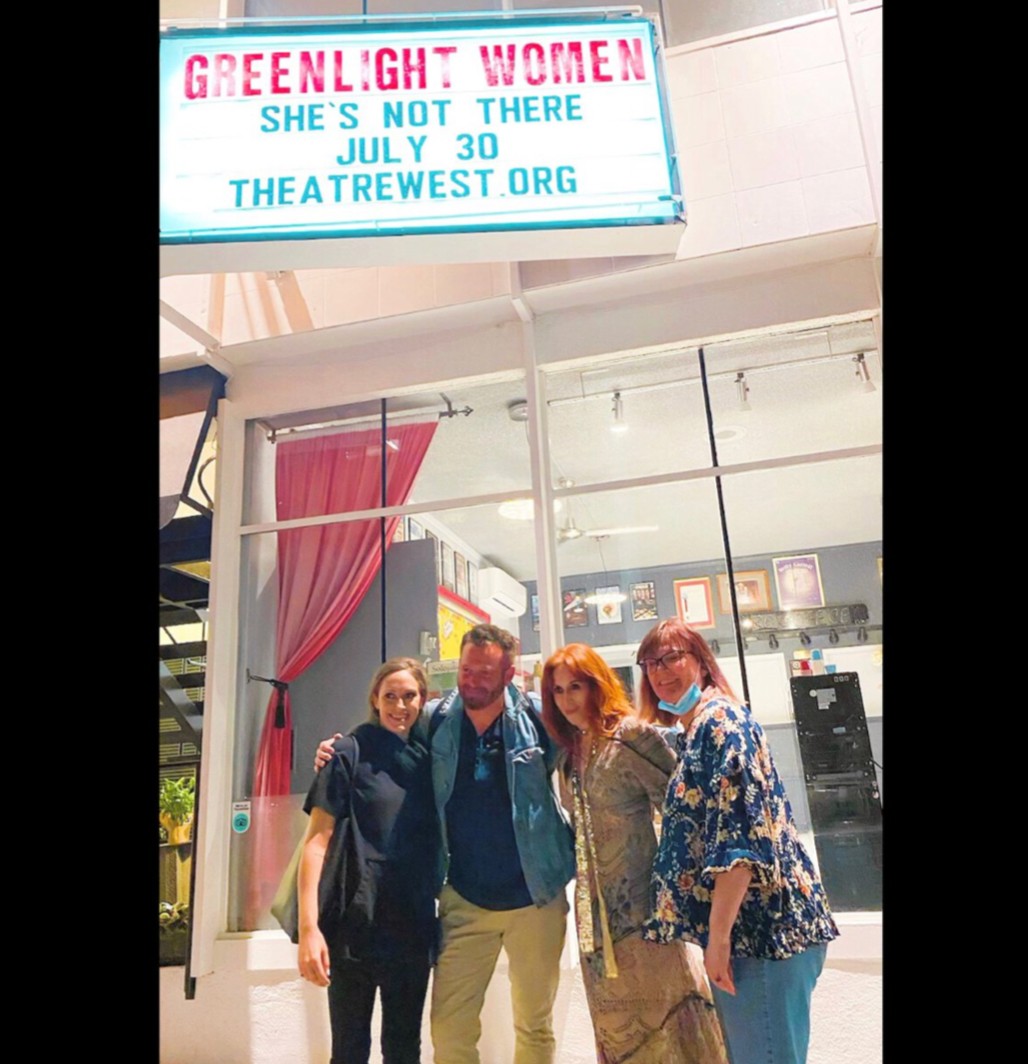
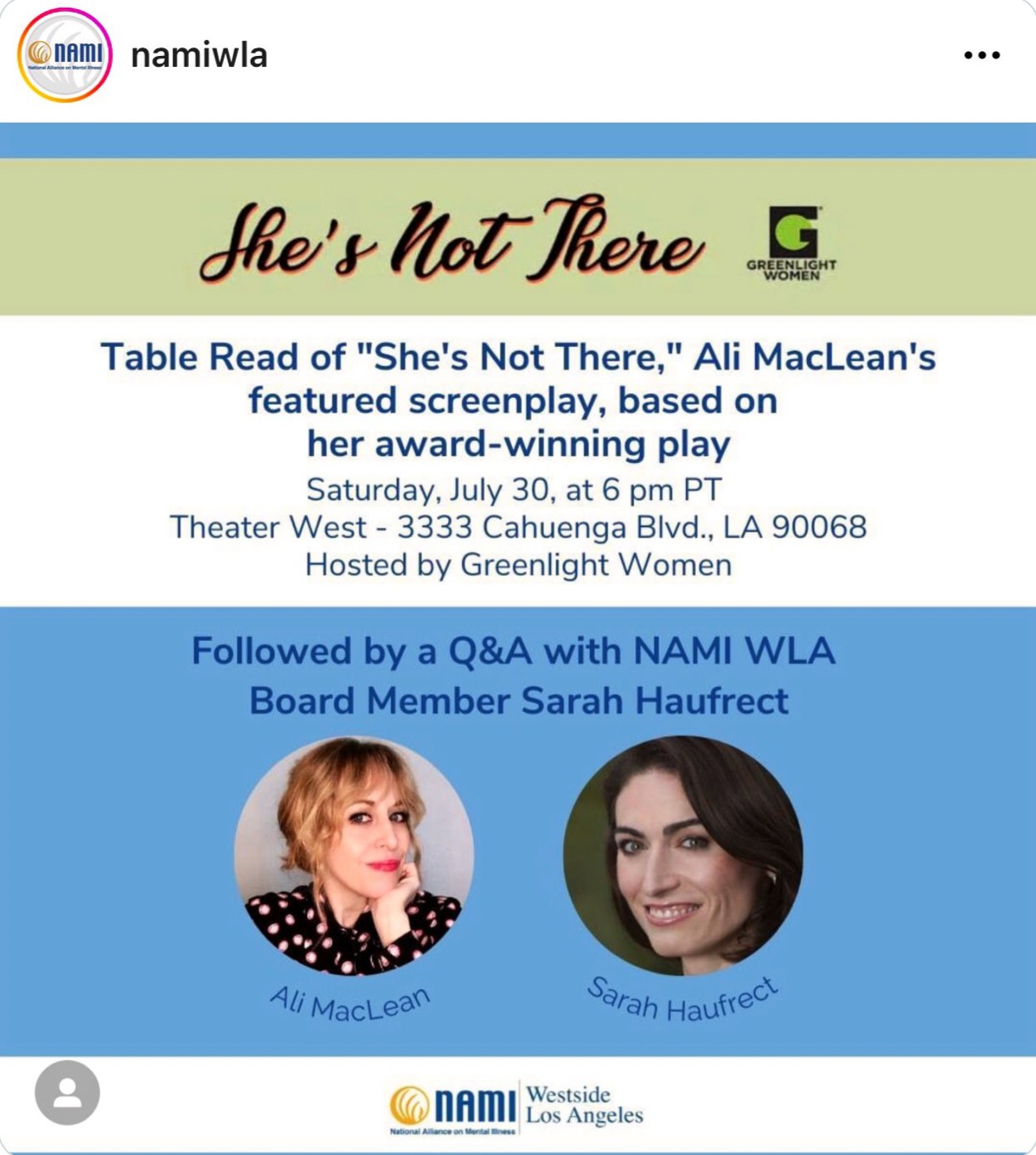
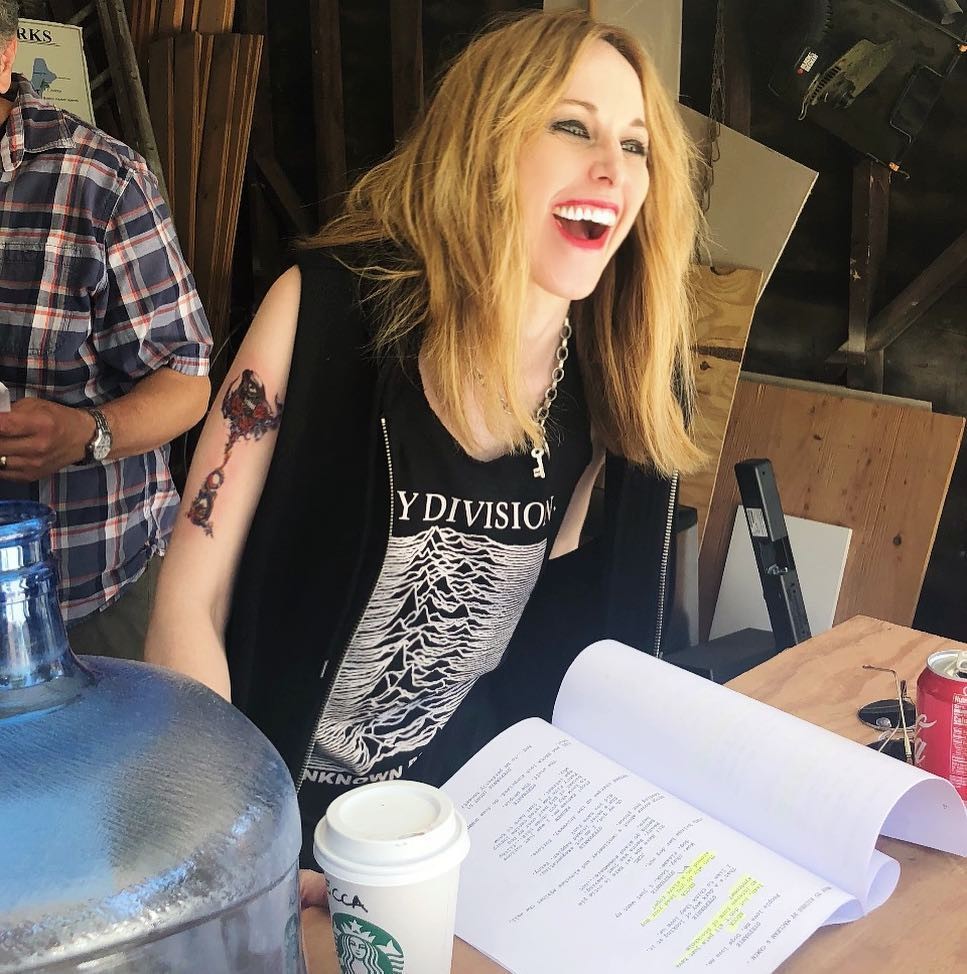
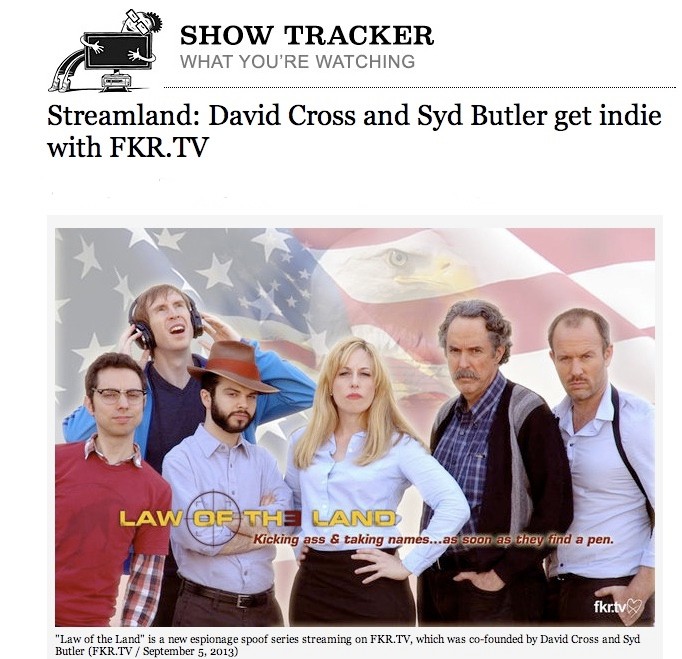
Is there a particular goal or mission driving your creative journey?
Yes! As I said earlier, I create my projects from a sense of urgent need to understand human behavior, but there is always a component of the production that aims to aid others. I believe that theatre can be a salve because it fosters empathy as a shared emotional experience. Empathy seems to be something our society is short on these days. People have become more polarized and alienated from each other and they have been emboldened to say harmful, toxic, and inflammatory words and celebrate bad behavior. But the theater, whether the show is a comedy or drama, brings people together.
A study done by the University College of London’s psychology division found that watching theater will synchronize your heartbeat with other people in the theater, even if you don’t know them. A London theater poll discovered that 59% of people were emotionally affected by the show they saw, and 46% enjoyed themselves because they were able to watch with other people.
In this post lock down society, filled with technology to connect us which actually isolates, uniting with each other is needed. If we can synchronize by enjoying art together, perhaps we can become more empathetic and sympathetic to one another. As a writer, my goal with my work, in addition to entertaining, is to create this empathy, spark a discussion, and also provide resources to those in the community who need it.
My hope is that, in addition to entertaining an audience, my work can create this empathy, spark a discussion, be a call to action, and also provide resources and help to those who need it.
That is why I created The Cathartic Company, a collective with an altruistic creative model of “artivism”. Each project is partnered with a non-profit that correlates with the show’s theme, and performances are paired with relevant experts, liaisons, literature, and resources available for the audience so they can process what they’ve witnessed and have a safe space to share their thoughts, ask questions and get information.
I’ve personally seen what a strong performance can do to create empathy in someone who was previously closed off. I’ve seen it heal people and bring joy to those who have had a lot of trauma. The arts are generally pushed aside as an extra, or an unnecessary thing that we can have when the economy is healthy and our nation is stable. I argue that without the arts, we won’t ever reach that stability. As Lauryn Hill says “how you gonna win if you ain’t right within.” Pretty much says it all.
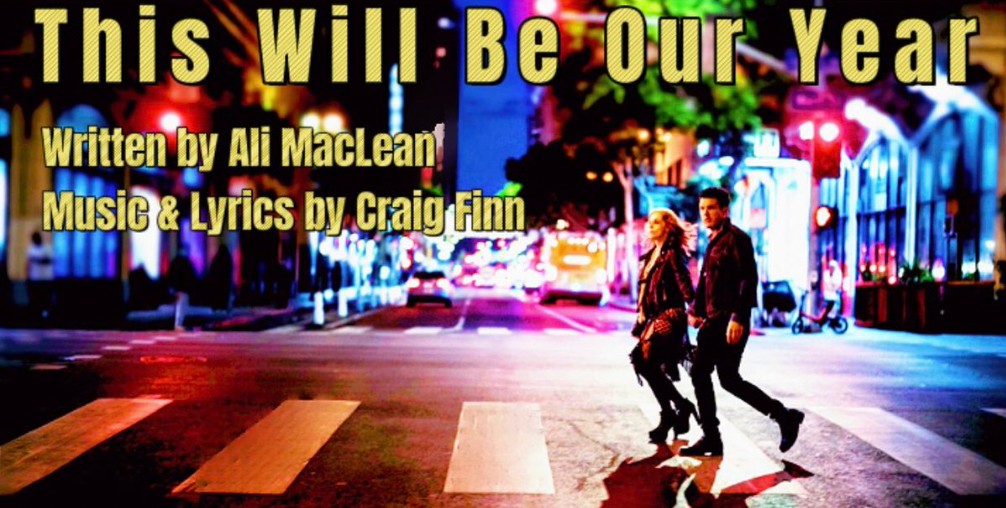
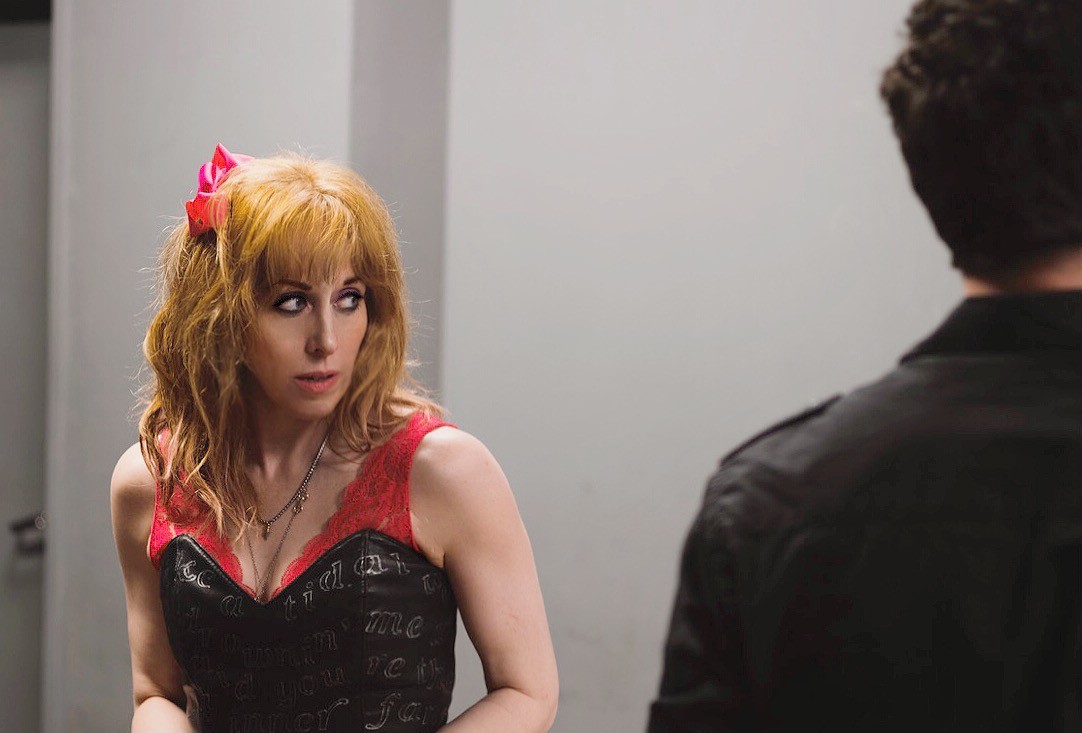
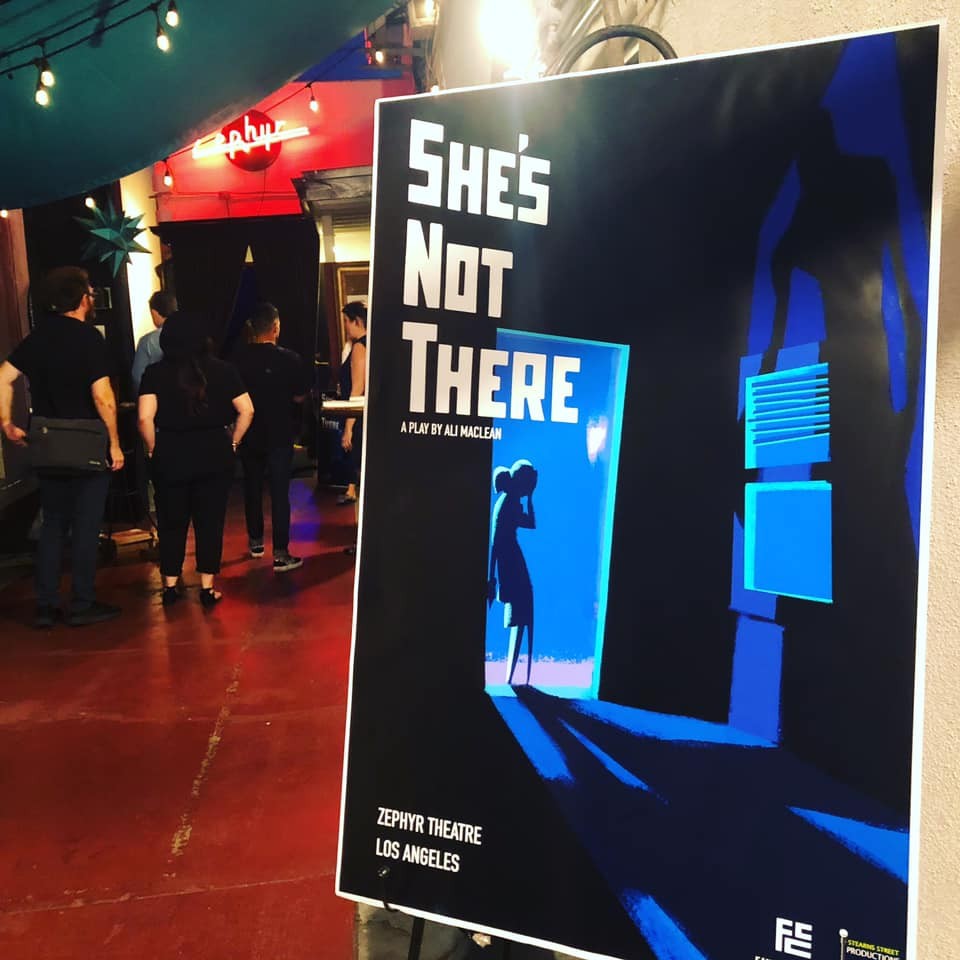
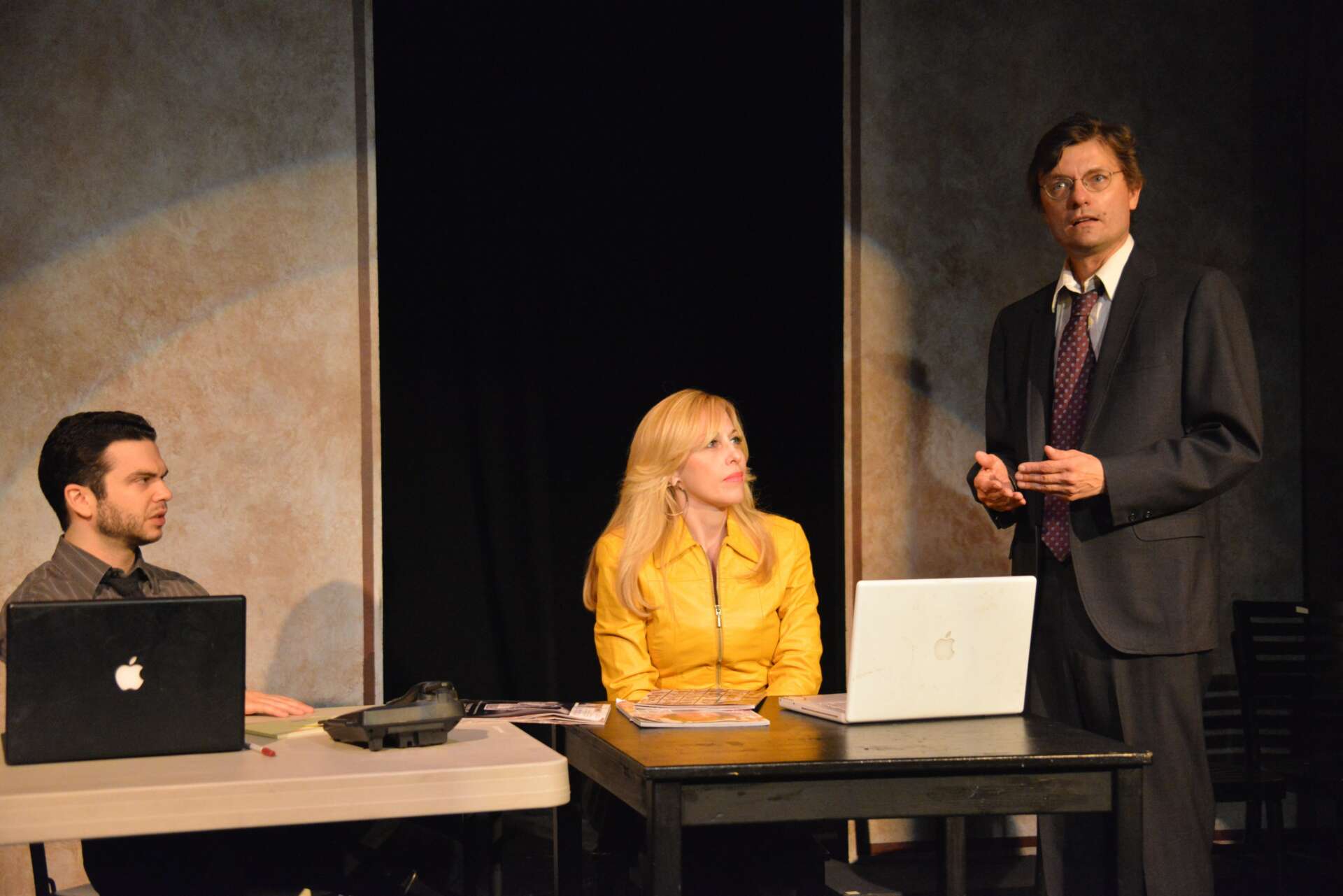
Contact Info:
- Website: www.alimaclean.com
- Instagram: www.instagram.com/aliontheair
- Facebook: https://www.facebook.com/alimaclean
- Twitter: https://twitter.com/aliontheair
- Other: coming soon: www.thiswillbeouryear.com current go fund me for our musical: https://www.gofundme.com/f/this-will-be-our-year-workshop?utm_source=customer%3Futm_medium%3Dcopy_link&utm_campaign=p_cf+share-flow-1
Image Credits
Ali MacLean, Michael Rababy, Rob Eaves, Amy Rachlin


